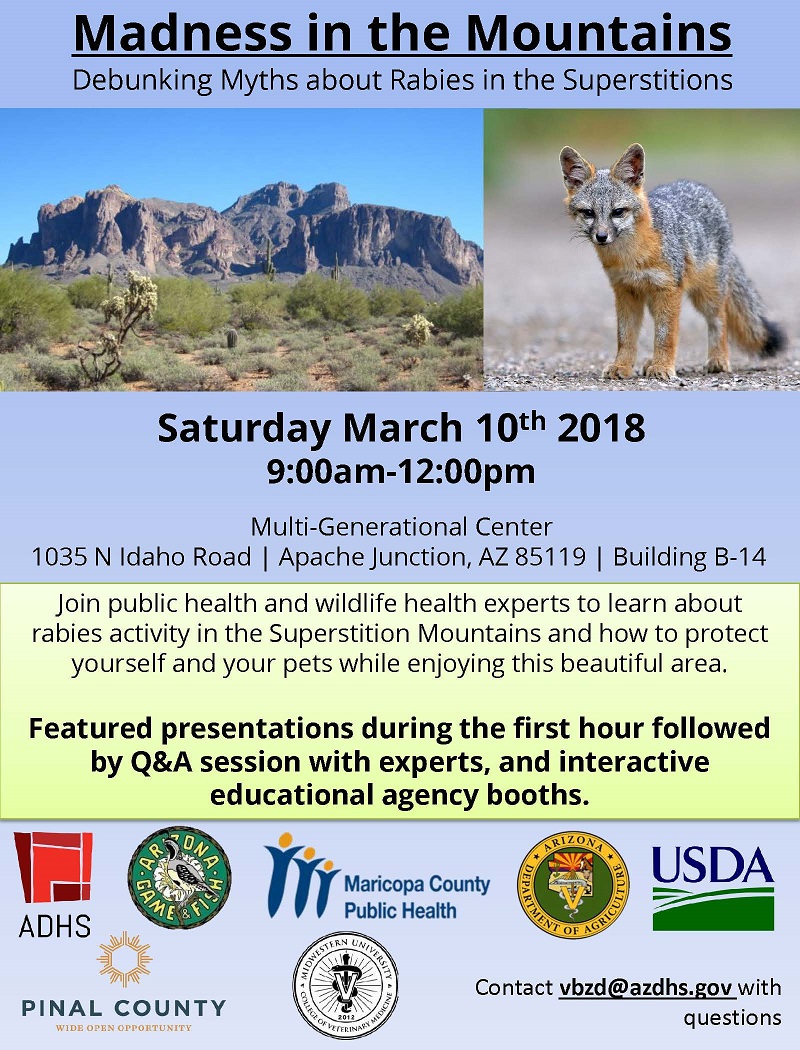Ebola Enhanced Entry Screening to End in the U.S.
 In December, the WHO declared the end of Ebola transmission in Guinea. As of February 19, all U.S. enhanced screening and monitoring requirements for travelers returning from Guinea have been removed. This follows a CDC assessment that the risk of Ebola in travelers from Guinea is low.
In December, the WHO declared the end of Ebola transmission in Guinea. As of February 19, all U.S. enhanced screening and monitoring requirements for travelers returning from Guinea have been removed. This follows a CDC assessment that the risk of Ebola in travelers from Guinea is low.
Travelers leaving from Guinea […]
Disease Investigations: Electronic Tools at Work
 When you get sick with an infectious disease like Salmonella or the flu, your healthcare provider or the laboratory that conducted the test on you is required to report your illness to the county or state public health department. In Arizona, almost 100 different diseases are reportable. Public health disease detectives investigate […]
When you get sick with an infectious disease like Salmonella or the flu, your healthcare provider or the laboratory that conducted the test on you is required to report your illness to the county or state public health department. In Arizona, almost 100 different diseases are reportable. Public health disease detectives investigate […]
Health Impact Assessment Training
 Our Bureau of Nutrition and Physical Activity, in collaboration with the Arizona Alliance For Livable Communities, is sponsoring a new, two-day Health Impact Assessment (HIA) training course designed and presented by Habitat Health Impact Consulting.
Our Bureau of Nutrition and Physical Activity, in collaboration with the Arizona Alliance For Livable Communities, is sponsoring a new, two-day Health Impact Assessment (HIA) training course designed and presented by Habitat Health Impact Consulting.
The purpose of the training is to build the skills of local health departments, non-governmental […]
Tips for Enjoying this Beautiful Weather
 While many parts of the country are still in the throes of extreme winter weather, here in Arizona, we’re seeing warmer temperatures and beautiful weather. This is the time of year Arizonans are outside getting active. It’s a great time to go for bike rides, take walks around the neighborhood, get the […]
While many parts of the country are still in the throes of extreme winter weather, here in Arizona, we’re seeing warmer temperatures and beautiful weather. This is the time of year Arizonans are outside getting active. It’s a great time to go for bike rides, take walks around the neighborhood, get the […]
Preparing for Foodborne Outbreaks in Arizona
 Foodborne outbreaks are unpredictable and often require a rapid response that includes fieldwork and sample collection to identify the source of the outbreak. Our Food Safety Environmental Services Program recognizes the importance of being prepared for these unplanned emergencies, which is why we always have foodborne outbreak response kits at the ready.
Foodborne outbreaks are unpredictable and often require a rapid response that includes fieldwork and sample collection to identify the source of the outbreak. Our Food Safety Environmental Services Program recognizes the importance of being prepared for these unplanned emergencies, which is why we always have foodborne outbreak response kits at the ready.
A few years […]
2016 SNAP-Ed Strategies and Interventions Featured in National Toolkit for States
 Our Bureau of Nutrition and Physical Activity competed successfully to have their SNAP-Ed interventions included in the 2016 SNAP-Ed Strategies and Interventions: An Obesity Prevention Toolkit for States. The comprehensive criteria used in the process focused on policy, systems and environmental change and the scoring process was rigorous.
Our Bureau of Nutrition and Physical Activity competed successfully to have their SNAP-Ed interventions included in the 2016 SNAP-Ed Strategies and Interventions: An Obesity Prevention Toolkit for States. The comprehensive criteria used in the process focused on policy, systems and environmental change and the scoring process was rigorous.
This national publication also includes many new cutting […]













